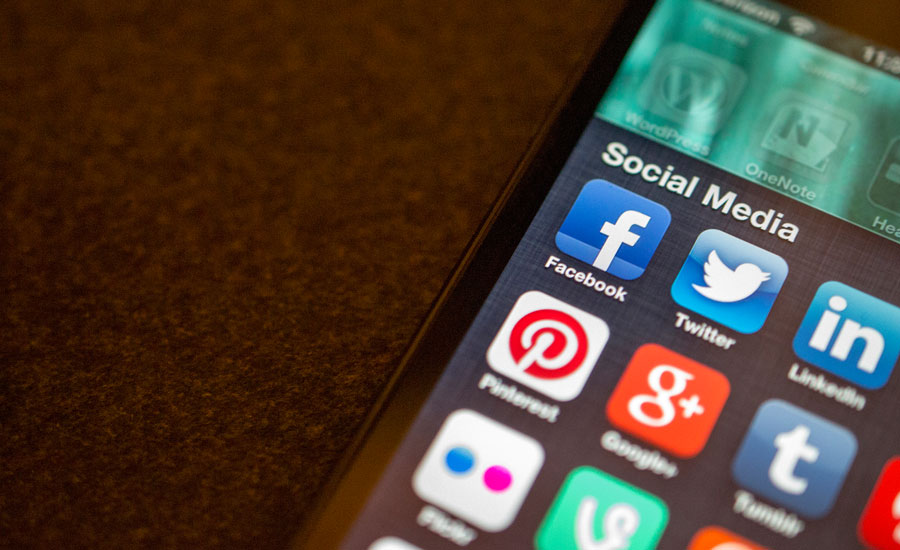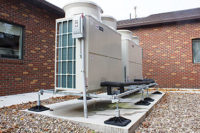Social media is here to stay, and these increasingly popular social networks present HVAC contracting businesses a great opportunity to engage with customers and market their businesses. However, social media is full of potential pitfalls, as well, including new liabilities.
According to a survey conducted by the Society for Human Resources Management (SHRM), about 40 percent of organizations have a formal social media policy. The survey found that 69 percent of organizations engage in social media activities to reach external audiences, 31 percent of organizations track employee use of social media, and 43 percent block access to social media platforms on company-owned computers and handheld devices.
Nancye Combs, president and CEO of HR Enterprise Inc. in Louisville, Kentucky, recently discussed social media and a number of other human resource issues during Heating, Air-conditioning & Refrigeration Distributors International’s (HARDI) annual conference. Combs recommended that HVAC companies draft a social media policy if one is not already in place.
“HVAC companies are responsible for everything that is on their computers,” she said. “When an employee posts something from a piece of company equipment, they are responsible for that, so they must maintain what are called managerial controls. They have tremendous legal liabilities for what is on their equipment. The second thing is they have a responsibility to protect their brands. They don’t want people posting things and disparaging their brands, which includes brand partners. If I’m an HVAC distributor or contractor, I’m responsible for my own company’s name, and I’m also responsible for the manufacturer’s products I sell. If we allow employees to disparage our business partners, then we risk losing our businesses.”
There’s also the issue of insurance. According to Combs, many insurance companies are not renewing liability insurance coverage unless companies have certain written policies in place. Those specific areas include equal opportunity employment, workplace violence, drug-free workplaces, and social media.
“If you don’t have those written policies in place, it’s not worth it to the insurance company to take the risk,” Combs said. “You need to tell employees in your social media policy that they are not the spokesperson for your company and put boundaries on what they can talk about, take pictures of, and post, otherwise the insurance company deems you negligent. These privacy issues must be dealt with.”
WHAT THE NLRA PROTECTS
The National Labor Relations Act (NRLA) protects employees’ rights to unionize, grieve, and have their grievances heard, so HVAC contractors must be careful in how they word their social media policies.
“The company must provide the opportunity for employees to complain,” Combs said. “The single employee can go on social media and say, ‘I work at Jimmy’s Air Conditioning Shop and I hate that place because my boss is a jerk.’ The employer can’t do one thing about it because that employee has a right to vent his or her frustrations about his or her work.
“On the other hand, that employee is not the spokesperson for the company, and he or she doesn’t speak for all the employees,” she continued. “The employee has no right to go onto social media and say, ‘I work for Jimmy’s Air Conditioning Shop, and we are treated terrible, do not get paid well, don’t have good benefits, and our management stinks.’ That person can’t do that because he or she can’t speak for ‘we.’”
Combs, who monitors Facebook for her clients, said she had one scenario where a disgruntled employee failed a drug test and took to social media to disparage the company.
“He was driving a company truck and flunked the drug test, so they fired him,” she explained. “His way of getting back was to go on social media and say, ‘Beware of this company — its technicians are not well-trained and most of them are high all the time.’ Now, even though that wasn’t true, once it’s out there, it’s out there forever. There’s no way to get it back.”
To sum it up, it’s not that employees can’t speak about a company — they can speak their mind as long as it’s only their mind and they don’t disparage the company’s brand, products, customers, or business partners, Combs noted. “We cannot prohibit employees from saying they are unhappy. They can grieve about their own job. We can prohibit employees from speaking disparagingly about the company, its products, other employees, and customers. We can tell them they may not make any comments or post any information about business operations, pricing, and research and development.”
CONTRACTORS DIVIDED
Rob Minnick, CEO and president of Minnick’s Inc. in Laurel, Maryland, said his company does have an official social media policy governing its use by employees.
“We have a policy to protect our company, customers, and the employee,” Minnick said. “We enforce the policy by having it monitored by our third-party cellphone company.”
Minnick’s social media policy encourages employees to use good judgment when communicating via social media. The guideline states: “Ultimately, you are solely responsible for what you post online. Before creating online content, consider some of the risks and rewards that are involved. Keep in mind that any of your conduct that adversely affects your job performance; the performance of fellow employees; or otherwise adversely affects customers, vendors, suppliers, people who work on behalf of the company or its legitimate business interests may result in disciplinary action up to and including immediate termination.”
The policy also informs employees that the company will take steps to monitor employees’ use of social media to ensure they are adhering to the provisions of the policy and relevant laws and regulations.
Steve Moon, owner of Moon Air Inc. in Elkton, Maryland, also employs an official social media policy in his business.
“Social media should be taken very seriously,” Moon said. “It can help or do damage to your business. It’s very hard to enforce, but we set up Google alerts on our company and our team members to help control abuse. For the most part, we try to stay out of personal issues when monitoring employees’ social media, but when it involves our company or industry, we are vigilant.”
Moon Air’s policy states: “Always be fair and courteous to fellow employees, customers, members, suppliers, or people who work on behalf of the company. Also, keep in mind that you are more likely to resolve work-related complaints by speaking directly with your coworkers or by utilizing our open-door policy than by posting complaints to a social media outlet. Nevertheless, if you decide to post complaints or criticism, avoid using statements, photographs, video, or audio that reasonably could be viewed as malicious, obscene, threatening, or intimidating; that disparages customers, members, employees, or suppliers; or that might constitute harassment or bullying. Examples of such conduct might include offensive posts meant to intentionally harm someone’s reputation or posts that could contribute to a hostile work environment on the basis of race, sex, disability, religion, or any other status protected by law or company policy.”
The policy also requires confidentiality of the company’s trade secrets and private or confidential information. It also requires employees to refrain from using social media during work time or on company equipment, unless it is work-related and authorized by a manager.
Not all contractors have specific policies governing social media in place. Some, like Mesa, Arizona-based Magic Touch Mechanical Inc., have not had any problems that required drafting a specific guideline outlining its use.
“As it’s never been an issue, we have never created an official company policy,” said Rich Morgan, owner of Magic Touch Mechanical. “I’d like to think it has something to do with our hiring practices, but it could boil down to luck. Maybe they all know I’m so active on social media, so they think I’m watching? I really can’t explain it, as I know I’ve heard many other contractors say this is a big issue for them.”
Additionally, Lowell, Arkansas-based Bud Anderson Heating & Cooling feels it doesn’t need a social media policy at this time, according to Debra Bifulco, human resources manager for the company.
“Our technicians do not have access to download any applications on company-owned iPads,” she said. “We control the iTunes account. Most field technicians carry company-owned Rugby phones, which are voice-only. I’m sure some of them use their personal smartphones throughout the day to check social media while eating lunch or waiting for their next call, but we have not had any problems with it.”
Additionally, Bifulco said, the company doesn’t monitor employees’ use of social media. “We feel they are entitled to privacy on personal accounts. I prefer to have mutual respect and trust with employees.”
Rich Biava, vice president, GAC Services, Gaithersburg, Maryland, said while the company doesn’t have an official social media policy, it regularly monitors social media accounts.
“We actually encourage our guys to take pictures in the field and then send them to our social media people that manage our Facebook page,” Biava explained. “They do that regularly. We encourage them to do that so we can get some cool, engaging content up. We try to post content people will like and enjoy.
“They definitely go on personal accounts, too, and maybe we’re relaxed in this, but it’s a social outlet,” continued Biava. “Many of our employees have friended the business, myself, or my business partners, and I haven’t seen anyone do anything that was completely in poor taste. I don’t know if that’s a function of the type of people we have. When we hire, we’re hiring on character. Anything related to the business, we jump on that immediately, but we’re not actively scouring our employees’ pages to see what they are actively posting about work, life, and things of that nature.”
While there is no official policy in place, Biava said his company has worked with employees to make sure they understand they are at work, and when they are posting, they are representing more than just themselves. “We have a great group of people who want to see the business they work for do well, and they are conscious of the actions they are taking during the day.”
Publication date: 1/30/2017
Want more HVAC industry news and information? Join The NEWS on Facebook, Twitter, and LinkedIn today!











